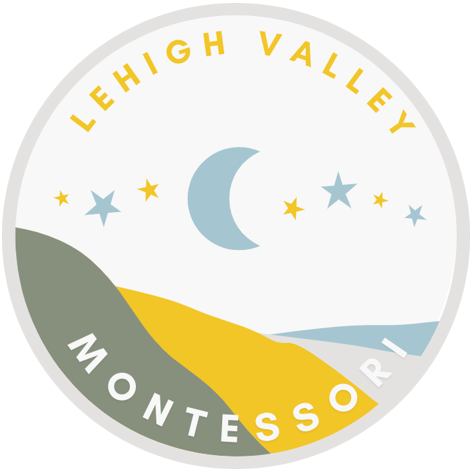Early Childhood
Islamic Arabic Immersion
3 - 6 years

Our school model is rooted in the Qur'ānic worldview and contains the classic elements of the Montessori method. Lehigh Valley Montessori's unique curriculum covers Islamic studies, ḥifz (memorization) of the Qur'ān, English and Arabic languages, practical life, sensorial, mathematics, and cultural (art, botany, history, geography, zoology). The Early Childhood program maintains a low child:teacher ratio of 1:7, with three teachers and no more than 20 students. Based on our Arabic immersion model, each classroom is guided by two teachers who speak exclusively in English, and a third who speaks exclusively in Arabic.
Islamic Studies
Using Montessori principles, oral and visual storytelling and best practices in early childhood education, the Islamic Studies component of our school’s curriculum is meant to preserve children's فطرة / fitrah (innate nature) and develop their foundational knowledge of Islam.
Hifz
Ḥifz (memorization of the Qur'ān) begins with consistent exposure to Qur'ānic recitation with proper pronunciation. Our teachers follow each child at his or her own pace, helping them memorize sūrahs from juz 'amma. In addition, children learn أدعية / ad'iyah (supplications) and أذكار / adhkar (remembrances of Allah).
Language
Around the age of 2 years, children "explode" into language. This happens after toddlers have had consistent exposure to the spoken language(s) around them. At LVMS, each classroom maintains English- and Arabic-speaking teachers and spaces are labeled in both English and Arabic texts. While most children are not yet reading, they do learn to identify letter symbols and sounds in both languages. They also unconsciously pick up on text orientation of each language - left to right (English) and right to left (Arabic).
Practical Life
Children learn everyday life skills, such as how to get dressed, prepare snacks, set the table, and care for themselves and other living beings. They also learn appropriate social interactions, such as Islamic greetings and words of kindness, when to say please and thank-you, practicing patience, listening without interrupting, and resolving conflicts peacefully. In addition to teaching specific skills, Practical Life activities promote independence, and fine- and gross-motor coordination.
Sensorial
The sensorial area of our curriculum focuses on lessons and activities that help develop the five senses: seeing, hearing, touching, tasting, and smelling. The lessons and activities help children clarify, classify, and understand the world around them. The carefully designed sensorial materials are created with built-in feedback to control errors aimed to show when a mistake has been made. Children are encouraged to independently notice their mistakes, which develops their self-confidence and desire to practice and improve. A child’s senses will become structured and capable of comprehending abstract concepts through experiencing the sensorial lessons. The sensorial area is divided into six categories: size, form, color, tactile, gustatory, olfactory, and auditory.
Mathematics
Through hands-on activities, children learn to identify numerals and match them to their quantity, understand place-value and the base-10 system, and practice addition, subtraction, multiplication, and division. They also explore patterns in the numbering system. With an exploratory approach, children do more than just memorize math facts; they gain a firm understanding of the meaning behind them.
Social Studies
A wide range of subjects, including history, geography, art, botany, and zoology, are integrated in lessons in the cultural area of the Montessori curriculum. Children learn about their own community and the world around them. Discovering similarities and differences among people and places helps them develop an understanding and appreciation of the diversity of our world, and a respect for all living things.
Day in the Life
Below is a preview of the rhythm of our early childhood program. It is a flexible plan, as Montessori philosophy emphasizes following the child's needs.
8:30am | Arrival, practical life routines
9:00am | Morning circle (dua, adthkar, welcome song)
9:00am – 10:30am | Montessori work cycle (individual lessons, observations, cultural unit presentation). Snack station open.
10:30am – 11:30am | Outdoor play & large, gross motor movement
11:30am -12:15pm | Lunch with friends and teachers
12:30pm - 2:00pm | Nap time
12:30pm – 12:45pm | Reading Time
12:45pm - 2:00pm | Montessori work cycle (individual lessons, observations, cultural unit presentation).
2:00pm - 2:20pm | Afternoon snack
2:20pm – 2:30pm | Clean up
2:30 pm - 3:30pm |Outdoor play & large, gross motor movement. Dismissal from yard.
Our Early Childhood/Kindergarten program is full.
Join our waitlist.
Subscribe to our mailing list to receive latest news & updates!



